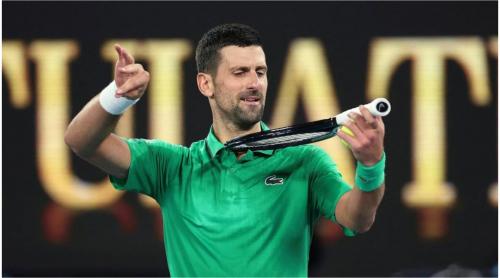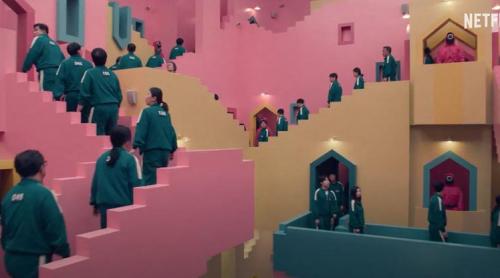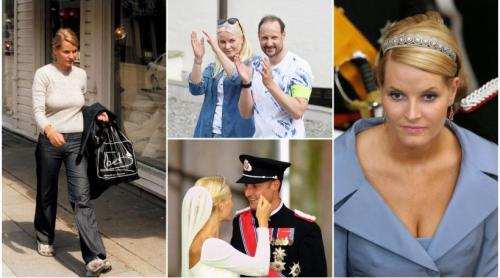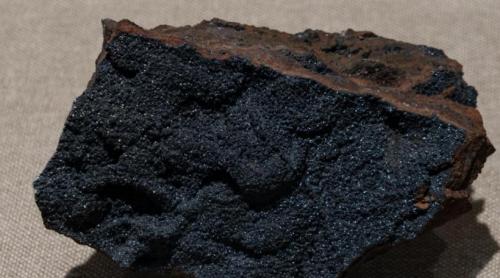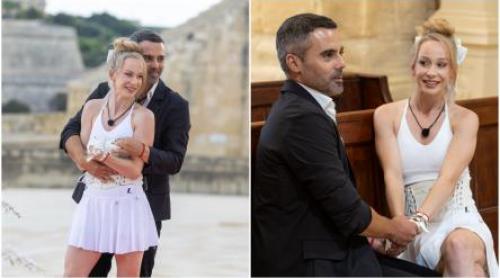
Marie-Jeanne Ion, one of the three Romanian journalist taken hostage on 28 March and released on 22 May, gave details she refrained to, prior to Florenceâs Aubenas release, this Saturday.
Marie-Jeanne Ion, one of the three Romanian journalist taken hostage on 28 March and released on 22 May, gave details she refrained to, prior to Florenceâs Aubenas release, this Saturday.
Jurnalul National: Are you happy, Marie-Jeanne?
Marie-Jeanne Ion: What can I tell you? The phone rings off the hook, but starting today I am able to give the media all the information they want from me â¦
JN: How was the meeting with Florence Aubenas? Was she already in that basement cell when you were brought in?
MJI: When we were transferred to that hole, on April 1st, we were not told what were the rules we should have abide by: to not talk to one another, to not look at one another. So, the minute I got in I asked: ""Does anyone speak English?", "Quelquâun parle francais?", "Espagnol?" None answered, but later we understood that everybody mastered English. Not too long after that she approached our group and we started to talk to one another.
JN: You said before that that cell was very small, something like two by four meters. All six people were living there? sThe French journalist and her Iraqi guide, plus the three Romanian journalists and their Iraqi guide, transl. notet
MJI: I can confirm that we were indeed six people there, but not more than that.
JN: So, I understood that you were laying one next to the other. How did you manage to communicate?
MJI: In the last part of our detention we had our mattresses placed one next to the other. sOur captors placed them.t When they took us out for taping the messages they kept asking me: "How many people are you inside?", and I would answer: "How would I know, it is too dark." And then hey will ask "Who is lying on your right, a woman or a man?", and I would answer: "I do not see, I do not speak, how would I know?" It was essential to not give in away the fact that we were actually communicating among ourselves.
JN: How did you realize the woman was Florence? Could you see her in the darkness?
MJI: It was pitch dark; only a beam of light came from a pipe, at the end of which was a bulb, in the room on top of the basement. She talked to us in French, and I also saw her on television safter Florenceâs kidnappingt. So I asked her if she was the French journalist kidnapped at the beginning of the year. She said yes, and then I asked her for how long had she been there. She said "three months" and then my heart sunk.
JN: What was she telling you when you succeeded to talk?
MJI: She kept encouraging me. When one is in a situation like this, one gets deeply depressed from time to time. One thinks one never will get out alive. I read a lot of stories from former hostages, and none ever said staying in a cell, under the ground. When I saw were they put us I was very scared that this was a sign that we were on a different track than to be released. Hence I obsessively kept asking her "Do you think we will come out alive? Do you believe everything to be ok in the end?" And she kept telling me "Sure we will come out. We must." She is an extremely optimist and positive person, with a very strong psychic. She kept convincing herself, while convincing me too that all will end well. When one is trapped in such a situation, there is no other option, or you go insane.
JN: You said at one point that the women were taken out to toilet more frequent than the men were. Were you able to talk during those instances?
MJI: The distance to the toilet was very short. We were taken out of the cell separately: first she, then I. We were escorted by guards, and could not see each other since we could not take out the blindfolds. The women were taken to toilet three times a day, while the men only twice or sometimes once a day, in the morning.
JN: How were the last hours you spent together? Did she hope in a positive resolution of her case?
MJI: She was very hopeful. We all thought she will be freed ahead of us since she was there for so much longer than we were, and efforts must have been made for her release.
JN: You had no information?
MJI: No, we did not have any clear information. I assume that it was pretty painful to her to see that we are not coming back. They sthe captorst pulled us out sthe group of three Romanian journalists and their guidet in midday, which was completely out of the regular routine. She could have imagined that we had been released, or that we had a different fate. One can imagine many things, when down there.
JN: Do you recall what you told one another during that day, even though you did not know you will be released/
MJI: I recall she was very sick that morning, because the night of 21 to 22 of May was a tough one: it was hot and we had no air. When they took her out to go to toilet, she fell; I heard her tripping. So they kept her longer outside the cell, to take a breath of fresh air. When they brought her in, they took us all out, so there was not time for good-byes or explaining what was going on.
JN: At one point you told that you almost suffocated.
MJI: It was very little air, and when that happens, you feel sick, dizzy, your head is heavy, you feel like throwing up, and breathe very rarely, since you do not have the strength even for that. When the guards came in they found us almost unconscious.
JN: Did they help you?
MJI: No, they just opened the opening and let us come closer to the source of air. After that they sent us back.
JN: Was there an opening?
MJI: Yes, it was, but please do not go into that line of questioning.
JN: What kind of person was Florence? How did she manage to hold on after such a long time?
MJI: I met a lot of people as a journalist, but very few of them may be truly called human beings, in capital letters. She is one. I also think she is a very good professional, because she told me of the times she went to Rwanda, Eritrea, or Kosovo, when these countries were at war. She is able to care for someone who suffers by her side. Clearly she had thoughts of her own and questions of her own and doubts of her own, but when she saw me or Sorin sMiscoci, the other journalist with Prima TVt being depressed, she put aside her own feelings and said: "Come one, we got to get out of here alive; we will make it!"
She is a beautiful human being and has a big heart.
JN: I understand that you were able to talk pretty much.
MJI: We did that at night, when the guards were not there. We had our heads on the same pillow and whispered into our ears.
JN: Was she ever coming close to being released?
MJI: I do not know. I only know that when we shot that video in which we were keeping the dayâs newspaper and stated that we were in good health my spirit went up thinking that our release was close. But after making the video they took us back into the basement. I know that similar videos were made with Florence too, but what was the end of that was not clear to us. One can never trust what they tell you it will happen.
JN: Talk about a 15 million dollars ransom paid for Florence surfaced. Did you or did she know anything about it?
MJI: I have no idea. One thinks of many options; in our case it turned out to be a different situation. But one can never know.
JN: Sorin said during your press-conference that soon you will have reasons to rejoice. Did you know of the progress of the negotiations for her release?
MJI: This is something for the people in Paris to answer. I have no idea if our negotiator was involved in her release too; we were not told, and we did not ask. As a matter of fact, we were so scared that if word got out that we knew she was there it would be bad for her, that we asked to talk with someone which would not leak anything to the media. So we warned sthe people debriefing themt that Florence was there.
JN: Now that Florence is free to can you tell how were you moved from one location to another?
MJI: We were moved in the trunks of two cars: I was in one car trunk, with Ovidiu sOhanesian, of Romania Libera dailyt, and Sorin was together with Mounaf stheir Iraqi guidet in another car trunk.
JN: Did they give you any reasons for your relocation?
MJI: They told us they will take us to a better location because they were sure now that we were not spies.
JN: So, it was not a violent handing over of hostages from one group to another?
MJI: No. I do not believe there ever is. We were all lied to.
JN: Can you tell now, in more detail, what happened that Ovidiu was beaten up?
MJI: He was in shock after he saw Sorin in the orange overalls sannouncing being on the death rowt. Sorin was crying; I was too. But his way of being shocked was that he was unable to show any emotional response. Then the captors starting saying: "What kind of a person are you?" Are you with the intelligence services?" Then one of the guys smacked Ovidiu over the face and put the Kalashnikov up his head. Then I got closer to Ovidiu and whispered: "Pull yourself together or we will all get in trouble."
JN: Ovidiu said that you were able to influence the way the filming was done.
MJI: I had no choice but to react. I did not want to see Ovidiuâs brain spread all over the room. So I confronted Ovidiu, not the guy with the Kalashnikov. When they told us to tell that the dead-line for the troops to be withdrawn was four days, I started to cry and ask: "How come four days?" knowing that this was an impossible task, hence we were to die in four days. "What then, the captor said, do you want four months?"
Yranslated By ANCA PADURARU
Citește pe Antena3.ro



